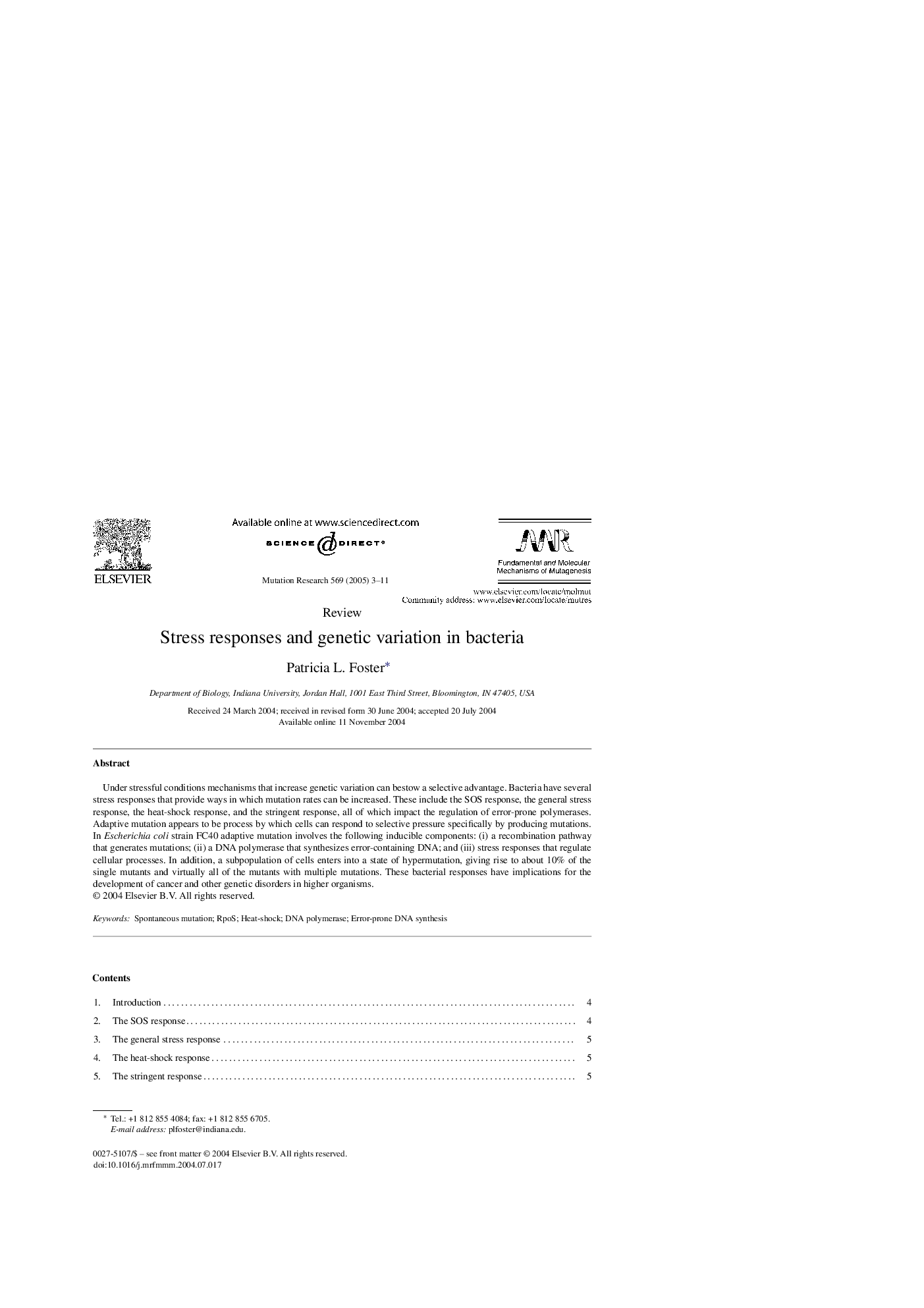| کد مقاله | کد نشریه | سال انتشار | مقاله انگلیسی | نسخه تمام متن |
|---|---|---|---|---|
| 9909201 | 1548440 | 2005 | 9 صفحه PDF | دانلود رایگان |
عنوان انگلیسی مقاله ISI
Stress responses and genetic variation in bacteria
دانلود مقاله + سفارش ترجمه
دانلود مقاله ISI انگلیسی
رایگان برای ایرانیان
کلمات کلیدی
موضوعات مرتبط
علوم زیستی و بیوفناوری
بیوشیمی، ژنتیک و زیست شناسی مولکولی
تحقیقات سرطان
پیش نمایش صفحه اول مقاله

چکیده انگلیسی
Under stressful conditions mechanisms that increase genetic variation can bestow a selective advantage. Bacteria have several stress responses that provide ways in which mutation rates can be increased. These include the SOS response, the general stress response, the heat-shock response, and the stringent response, all of which impact the regulation of error-prone polymerases. Adaptive mutation appears to be process by which cells can respond to selective pressure specifically by producing mutations. In Escherichia coli strain FC40 adaptive mutation involves the following inducible components: (i) a recombination pathway that generates mutations; (ii) a DNA polymerase that synthesizes error-containing DNA; and (iii) stress responses that regulate cellular processes. In addition, a subpopulation of cells enters into a state of hypermutation, giving rise to about 10% of the single mutants and virtually all of the mutants with multiple mutations. These bacterial responses have implications for the development of cancer and other genetic disorders in higher organisms.
ناشر
Database: Elsevier - ScienceDirect (ساینس دایرکت)
Journal: Mutation Research/Fundamental and Molecular Mechanisms of Mutagenesis - Volume 569, Issues 1â2, 6 January 2005, Pages 3-11
Journal: Mutation Research/Fundamental and Molecular Mechanisms of Mutagenesis - Volume 569, Issues 1â2, 6 January 2005, Pages 3-11
نویسندگان
Patricia L. Foster,